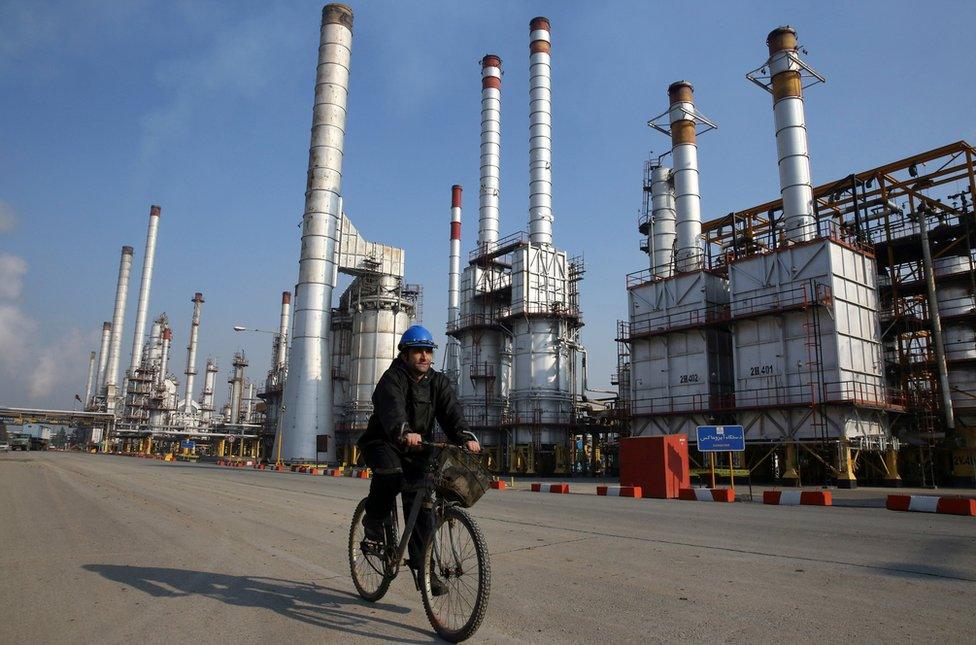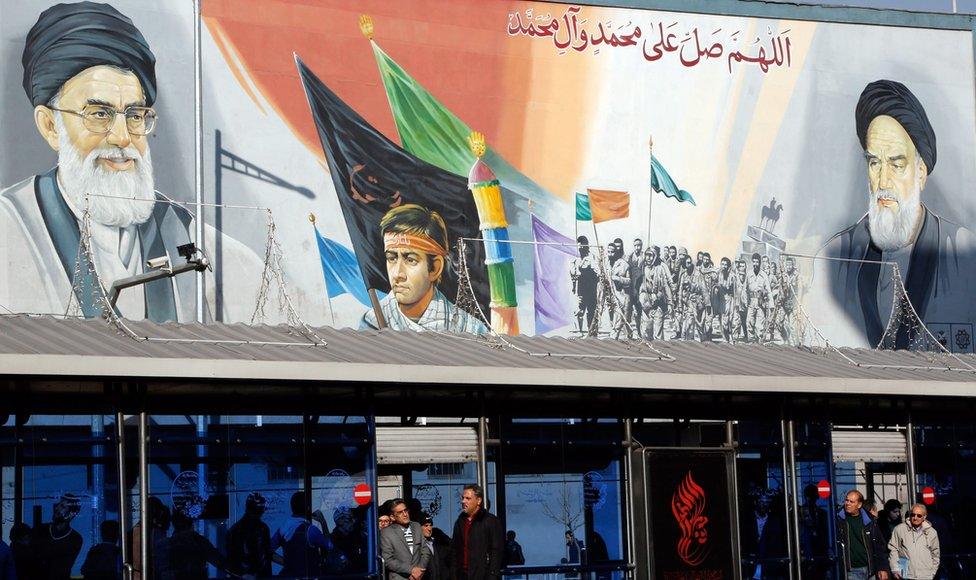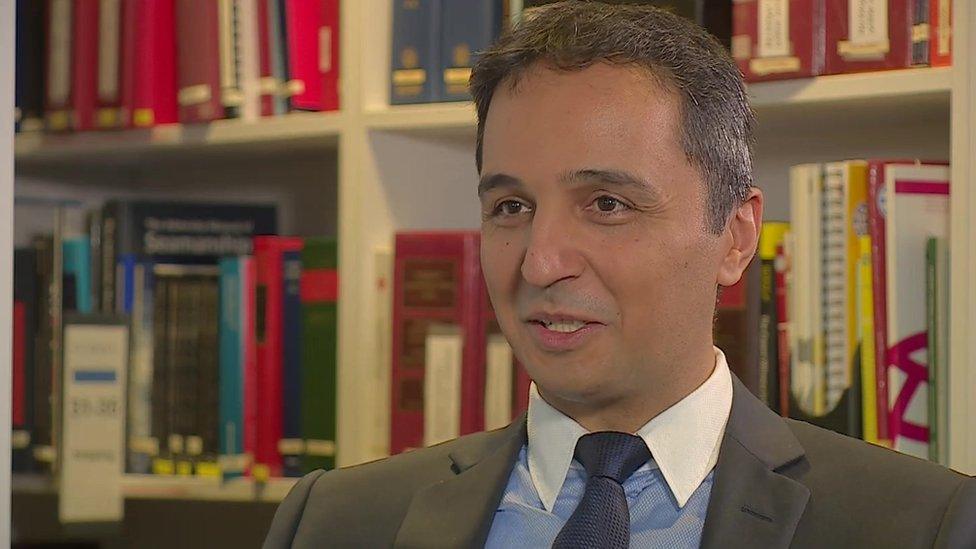Iran investment hope cheers traders in Dubai
- Published

The lifting of sanctions means opportunities for investors in Iran, including in the oil market
The last time Hassan Farshbaf was doing business in his homeland, Iran, he had to leave in a hurry. In 2009, when sanctions were tightened, he had to walk away from long-term contracts in oil services.
"We had a very big operation in Iran," he said, sitting poolside at his villa in Dubai. "We got a notice from headquarters that we had to go. We gave the client - the National Iranian Oil Company (NIOC) - three months to find someone else. They were not very happy about it."
Mr Farshbaf then had to wind up the operation - exporting equipment, transferring expats and sacking local staff - and move to across the Gulf.
"It was a very tough situation," he said.
That was the second time sanctions drove him from Iran. Now, the oil services consultant is one of many in business in the Gulf, and further afield, who are anxious to return.
"I was at a conference in Tehran about one and half months ago where the NIOC announced different opportunities," he said.
"Over 1,500 people attended including a lot of expats. Companies are hoping to get back in quickly. They want to go as soon as possible because usually the first ones who come get the best deal."
Orla Guerin reports: "Dubai could be one of the big winners from the lifting of [Iran's] sanctions"
Though many are eager to stake a claim in Iran he says that doing deals in the oil industry will take time.
"It's going to be a process," he said. "They (the Iranians) have a lot of projects. They have to tender them and award them, and then prepare for them. I don't see that being less than six months."
While he says he's excited about returning, he admits there could be some fallout from his hurried departure.
"There are people who still remember that occasion," he said. "Some of them negatively, some of them positively. Hopefully we will be able to pave the way and move on."

Sanctions had been imposed on Iran over its nuclear programme
Experts warn there will be winners and losers in the rush to invest in Iran. But Dubai itself could be one of the big beneficiaries. Potential investors may look to the emirate as a gateway to Iran's vast market of almost 80 million people.
The bustling city-state is a banking, transport and investment hub, and it is just two hours from Tehran.
Even under sanctions, trade links between Iran and the United Arab Emirates remained strong, with traditional wooden dhows carrying cargoes from Dubai across the Gulf.
For some here the lifting of sanctions has already generated more work.

Lawyer Amir Kordvani recommends "cautious enthusiasm" for those entering or re-entering the Iranian market
Within hours of the announcement, lawyers at the firm Clyde & Co. were busy trying to unfreeze the assets of clients who fell foul of the sanctions regime. Lawyer Amir Kordvani - who is Iranian himself - says there are rewards and risks ahead.
"The opportunities are vast in every area you look - services, infrastructure, hospitality, everything," he told us. "But at the same time the country is coming out of years of isolation, and even before that they had a number of issues. Sanctions are not the only problem."
Some entities and individuals will remain on the sanctions list, he warns, so people need to choose their business partners carefully.
For those looking at entering, or re-entering, the Iranian market he recommends "cautious enthusiasm".